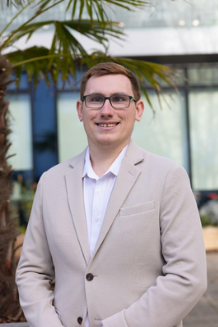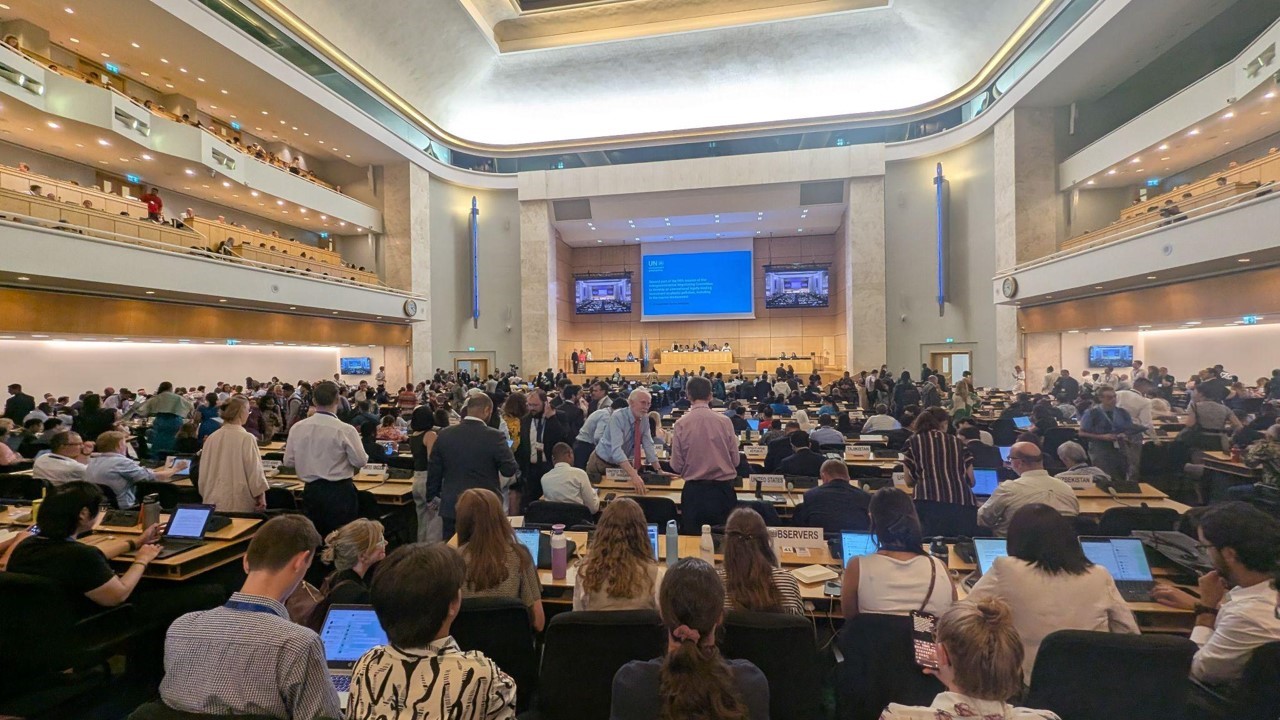
If the week began with grand speeches about the ability of multilateralism to change the world the days that followed have put that notion to the strongest of tests, with parties failing to agree on almost any of the substantive questions that must be resolved to build a meaningful plastics treaty. Sam Winton breaks down the current state of progress and outlines attempts by the Chair to break the deadlock and achieve an eleventh hour miracle.
Many stakeholders believe that a weak treaty could be worse than no treaty at all, sucking the political life from future actions to meaningfully address plastic pollution in the coming years. To say that the new Chair’s Text proposed on Wednesday afternoon was a disappointment would therefore be the understatement of the century:
Definitions – Missing
Chemicals – Unregulated
Production – Unabbated
Just Transition – Optional
A Financial Mechanism – Unfunded
A Standalone Article on Health – Killed
Decision-making at COPs – Deadlocked
This is not the treaty that 3,700 delegates have gathered in Geneva to negotiate. This is not a treaty which meets the mandate of UNEA Resolution 5/14. This is, quite simply, unacceptable.

Delegates gather for an explosive plenary with frenzied huddles across the room digesting the new Chair’s Text Photo: Sam Winton
When news broke late on Tuesday night that the Chair was planning to present a new text on Wednesday it was clear that he considered the useful life of the contact groups to be over. Therefore, when they each convened this morning, the contact group meetings were largely ceremonial in nature with co-chairs and delegates thanking each other for their work over the past days. However there was also much confusion, frustration and at times anger expressed. Prior to these meetings co-chairs had not been provided a clear way forward for the rest of the week. Members have spent the last 3 days meeting intensely, late into the night, in an attempt to make progress. However, this work was not complete and in many cases has not yet been reflected in any concrete outputs. This raised the legitimate question of how the Chair could reflect on this progress which has not yet been reported to him, how can he possibly use information that he does not have to inform his text, and if he is going to base his text on his own consultations rather than the contact group discussions, why on earth have delegates been spending 16 hours a day with no breaks for food, let alone a rest, in a desperate attempt to complete these discussions. Co-chairs were certainly at a loss and shared the frustrations of members, promising to reflect them to the Chair in a lunchtime meeting. I anticipated that this may be a major thorn in the plenary when it convened. It may therefore have been almost fortunate that the text he produced was so bad that the mess of the morning was quickly forgotten.
With the plenary scheduled to commence at 4pm, and strong anticipation for what was to come, observers gathered in the Assembly Hall early. By the time the text was released, shortly after 3pm, there was quite a gathering, ready to read through the text together, all looking for our key interests. My initial observations were positive. The text is only 12 pages, has almost no brackets, the preamble is reasonable and the objective addresses both human health and the environment. However, holes quickly appeared. Key definitions such as Plastic Products, Lifecycle and Plastic Waste are missing. Text on chemicals has been completely removed from Article 4 leaving them unregulated. Article 6 addressing production has been deleted, as has Article 19 on health. Despite some divergence, these last 3 topics have strong bridging text proposals, each supported by over 100 members.
More detailed reading revealed that the rights of Indigenous Peoples is only referenced once in the preamble and all references to their knowledge and practices have been deleted despite widely supported text proposals from Canada. A scan of the key operative articles revealed that only Article 7 on waste management guarantees the use of ‘shall’ indicating legally binding requirements. Other articles use language such as ‘should’ or ‘shall endeavour to’ marking these as voluntary. Parties would not even be required to create a national plan. Furthermore, while a financial mechanism will be set up, there is no requirement for it to be funded and decision making is threatened by paralysis as the rules of procedure at COPs must be adopted by consensus. Myself and many of my fellow observers sat digesting this text with extreme concern. This was a complete capitulation, dropping all ambitious measures. Surely the Chair did not have agreement within the committee for such a text.
After introducing the text in plenary. Ambassador Vayas set out a concise path forward. He wished to move immediately to regional consultations on his text, produce a new iteration overnight, approve the new text at plenary on Thursday afternoon for legal review, and forward it to the diplomatic conference at a plenary on Thursday evening. While he did not wish to take member interventions in plenary, the strength of feeling was far too strong and the Chair was therefore forced to accept responses to his proposal.
‘We regret to inform you that the proposed draft text is completely unacceptable and we cannot accept it as a basis for further consultation’. With this statement from Columbia, the floodgates were opened and during the following two hours, over 100 members furiously and vociferously rejected the chair’s text:
‘This text does not have any demonstrable value to ongoing international efforts to address plastic pollution’ – Kenya
‘This is simply repulsive. It is not ambition, it is surrender. We will not saddle our future generations with a text as weak as this’ – Panama
‘We need to convey extreme disappointment at lack of balance in the text’ – UK
‘Voluntary national actions have not been enough in the past decades and they are not enough now. If they were, we would not be here’ – Ghana
‘We deplore the lack of a comprehensive binding approach in the treaty’ – Peru
For the sake of balance, I must reflect that the Like Minded Group were also unhappy with the text, somewhat inexplicably. Despite a complete capitulation, the group wanted more, spelling out a detailed scope article and definitions with the sole purpose of removing the risk of any interactions with trade. For the group to be given so much and still reject it makes the fact that they will be impossible to compromise with, clearer than ever.
Where do we go from here? This was the focus of discussions for the final hour of plenary. Many countries rejected the text summarily, demanding a new iteration be produced before further discussions occur, others wanted to have the proposed regional consultations to work on the text further. There is also a suggestion for a Head of Delegations meeting to work with the Chair on an interaction. No one could agree on a way forward, quelle surprise. With the committee in deadlock, a beleaguered Ambassador Vayas pushed through a move to an evening of regional and bilateral consultations, with a likely Head of Delegation meeting occurring in the morning. We are then expected to convene for a fresh plenary session in mid-afternoon by which time a new text should have been circulated.
It is anyone’s guess what form that text will take. Will new brackets be added for addressing in plenary? Will the Chair finally accept that there is no mutually acceptable landing zone for all members and propose a stronger text which could gain the support of a majority, leaving behind the unwilling. This would require the abandoning of consensus and the implementation of a vote to get the text over the line. I would be shocked if this occurs but I retain hope for a miracle. One thing is certain. Ambassador Vayas will be grabbing what few hours of sleep he can tonight with the stern words of the committee ringing in his ears and an increasingly precarious grip on the successful delivery of a treaty text. Thursday is decision day. Time is up and the world is watching.

Extraordinary events!